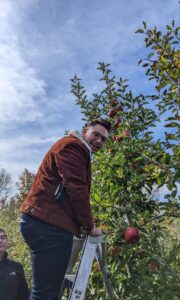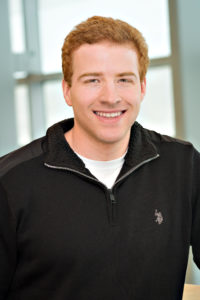
I grew up in Narragansett, Rhode Island and obtained my B.Sc. degree in Biology from University of Rhode Island. During my undergraduate, I studied DNA repair enzymes in cancer and toxicology. Currently, I work in the Butovsky lab assisting in research that examines the role of microglia in neurodegenerative disease. Recent work has been focused primarily on AD and ALS. Outside of the lab, I spend time either exercising or relaxing with family, friends, and my puppy.
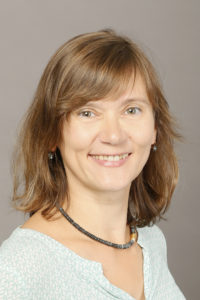
I am from Germany and have studied biology at the University of Göttingen. Here, I was trained in Virology and Molecular Genetics and graduated at the German Primate Center/Department of Virology and Immunology studying prion diseases. After a time in industry, I went on to study neurodegenerative diseases at the Institute of Neuropathology in Hamburg. I developed a special interest in the investigation of inflammatory processes in the brain that culminated in a very fruitful internship in the Butovsky lab. We continue our ongoing collaborations studying microglia phenotype switch in the diseased brain. Back in Hamburg, I have set up my own research group that is focusing on cell communication in the brain in neurodegenerative diseases including microglia and extracellular vesicle cross talk. When I am not doing science, I enjoy being a mom and like to take photos in nature.
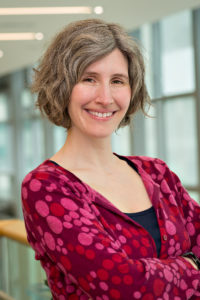
I was born and grew up in Croatia. I moved to the United States to attend college in California, and stayed there for my subsequent medical training. I completed my B.S., M.D., and Ph.D. training at Stanford, where my Neuroscience Ph.D. focused on mechanisms of synaptic specificity and neuronal polarity in C. elegans. I completed my ophthalmology residency and glaucoma fellowship at Duke, and then joined the faculty of Massachusetts Eye and Ear Infirmary/Harvard Medical School. As a Harvard-Vision Clinical Scientist Development Program (K12) scholar, I am spending 25% of my time on clinical activities (ophthalmology clinic and surgery) and 75% of time on developing a research enterprise in the Butovsky lab, with the ultimate goal of becoming an independent investigator. I am particularly interested in the role of the innate immune system in the pathogenesis of glaucoma. During my K12 training I am planning to investigate the role of microglia in mouse models of glaucoma, with the ultimate goal of developing new therapeutic modalities for this common blinding disease. In my free time, I enjoy spending time with my family, traveling, going to restaurants and museums, and dancing.
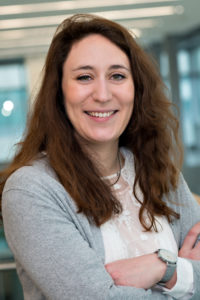
I am from Germany and have studied biology at the University of Göttingen. Here, I was trained in Virology and Molecular GenetiMy research interests focus on the immunomodulation of microglia during brain development and neuroinflammation, via genetic and/or environmental cues. I started to study Neurobiology at Limoges and Bordeaux Universities in France. During my Ph.D. studies at Bordeaux University, I focused more on Neuroimmunology when I joined the lab of Dr. Laye. I developed a great interest in microglia (my favorite cell) at that time. I looked at the effects of lipid maternal nutrition (omega3 deficiency during gestation) on microglia modulation and functions during brain development. For my postdoctoral research, I joined Dr. Butovsky’s lab to study microglia (still my favorite cell) and how they are immunomodulated in neurodegenerative diseases. We identified a novel mechanism of microglia modulation in disease, mediated by TREM2-APOE signaling. As a continuation, I recently started to investigate the effects of stress and neglect on microglia during early brain development and how these immune consequences can contribute to the appearance of early onset of neurodegenerative diseases such as Alzheimer’s disease.
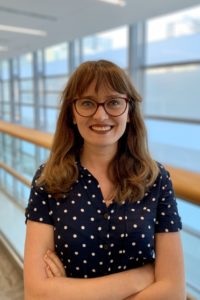
I can describe my research interest with one word: Microglia. Microglia, the brain-resident macrophages and phagocytes, most sexually dimorphic glia cells in the brain and they are recently appreciated as novel therapeutic targets in many neurodegenerative diseases. During my Ph.D. in Prof. Helmut Kettenmann’s lab, I studied differences in male and female microglia in many aspects and improved my knowledge about their role in many different disease conditions, which lead me to pursue as a Postdoctoral fellow in Dr. Butovsky’s lab. Here, I will be focusing on the modulation of microglia as a therapeutic approach in different neurodegenerative diseases, mostly Alzheimer Disease and Multiple Sclerosis. Outside the lab, I enjoy travelling and yoga.
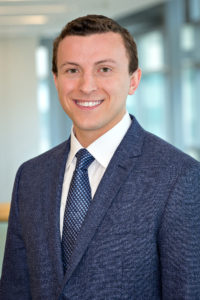
I was born and raised in South Florida. Moving slightly north, I attended the University of Florida where I received my B.Sc. and Ph.D. in Biomedical Engineering. During my doctoral work, I studied the relationship between epilepsy and neurogenesis, cognition, and neuroinflammation. This was my first introduction to neuroimmunology, and importantly, to microglia. Their wide array of roles ranging from mediating immune responses to maintaining homeostasis and synaptic remodeling instantly captured my imagination. My interest in the field only grew as microglia emerged as therapeutic targets in neurodegenerative and neuroinflammatory diseases. This interest has lead me to the Butovsky lab, where I will be focusing on the role of microglia and recruited monocytes in multiple sclerosis. Outside of the lab, I enjoy reading fiction novels, tennis, and playing with my dog, Piper.
I was born and raised in Berlin (and Potsdam), Germany. My studies of Molecular Life Science brought me to Luebeck at the Baltic Sea. However, after I received my Master degree, I was drawn back to Berlin, where I joined the Department for Neuropathology at the Charite for my PhD in Medical Neuroscience. This is where I met and fell in love with Microglia. I studied the role of those fascinating cells in adult neurogenesis and regulation of body weight and food intake. My infatuation with microglia brought me to Oleg’s lab, where I am now focusing on their role in neurodegenerative diseases, especially Alzheimer’s disease.
I was born and raised north of Boston. I presently provide administrative assistance through the coordination and development of research proposals and collaborations, as well as by supporting day-to-day functions of the laboratory. I especially enjoy spending time with my nieces and nephews and playing music with friends.
